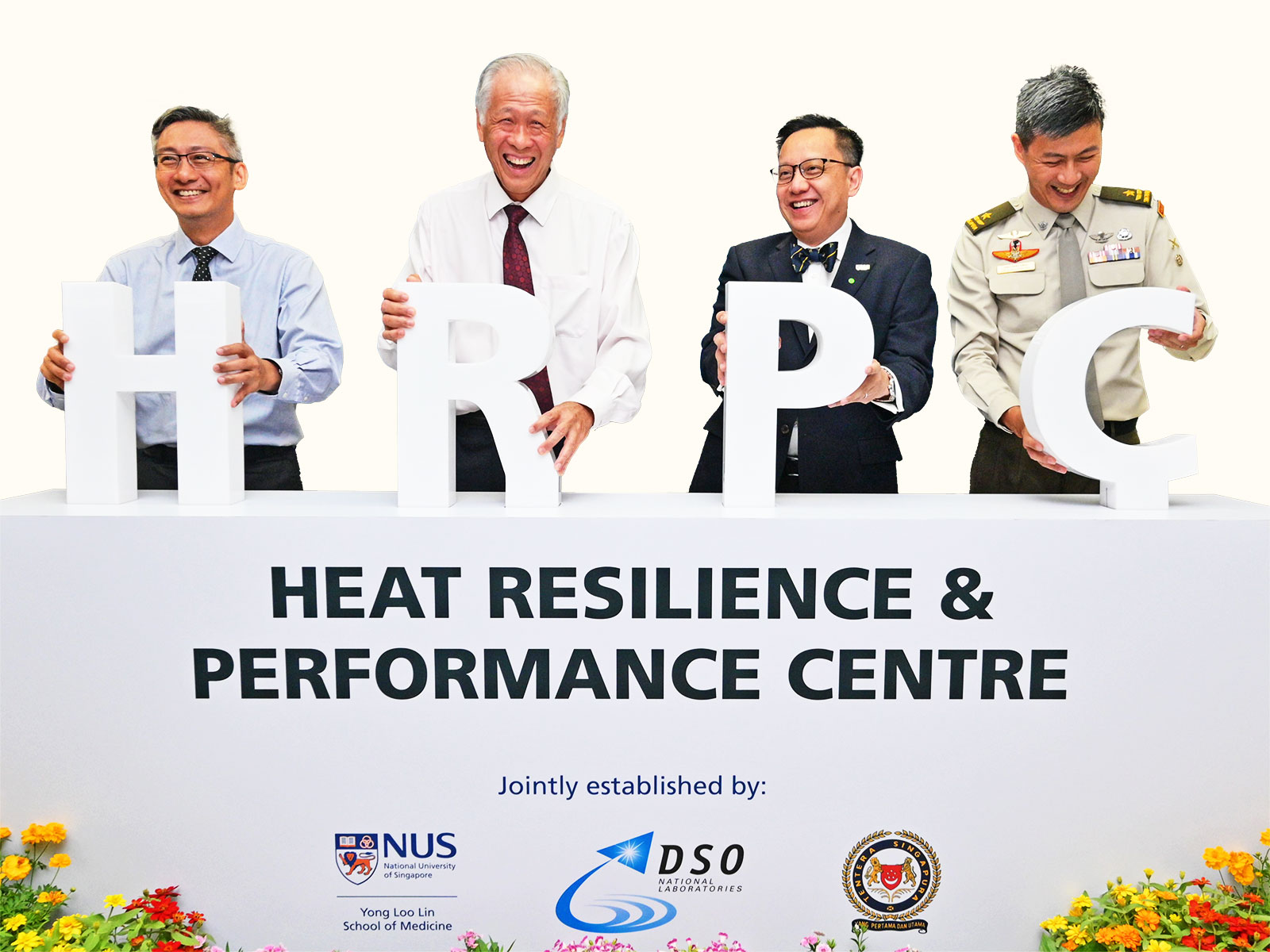
Issue 46
May 2023
DOSSIER
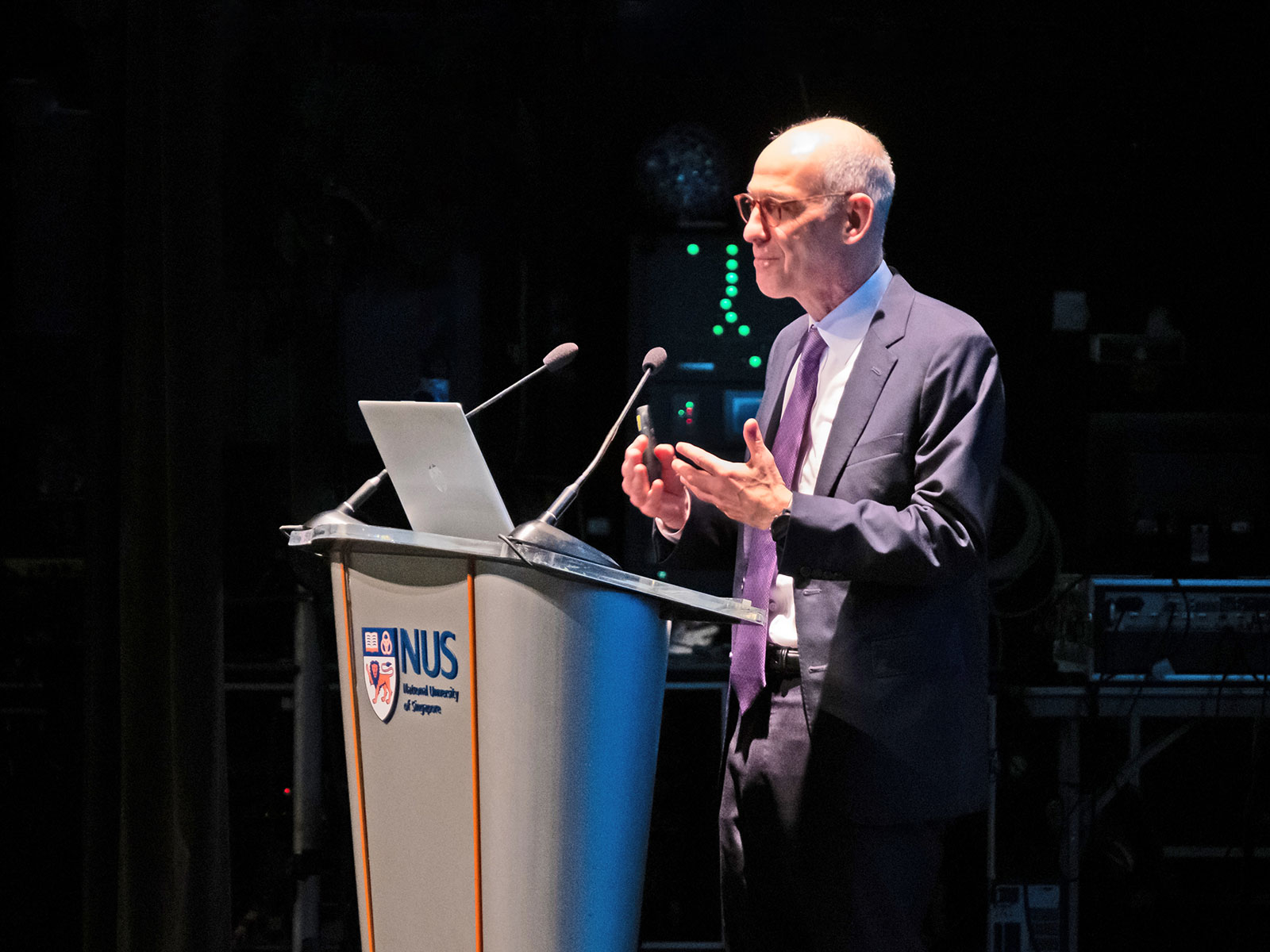
Former Obama Health Advisor Dr Ezekiel J. Emanuel speaks at the inaugural Global Ethics Lecture 2023, organised by the Centre For Biomedical Ethics (CBmE) at the Yong Loo Lin School of Medicine, National University of Singapore (NUS Medicine).
As the healthcare system evolves and more new diseases emerge, the ability to harness resources effectively for greater innovation in the medical sector is paramount. One such challenge to healthcare resource allocation is long COVID, a disease that remains understudied despite its urgency as a medical problem.
200
guests attended the conference
This renders the fair allocation of resources ever more important—with crucial ethical considerations among groups with different risk of disease and disadvantages.
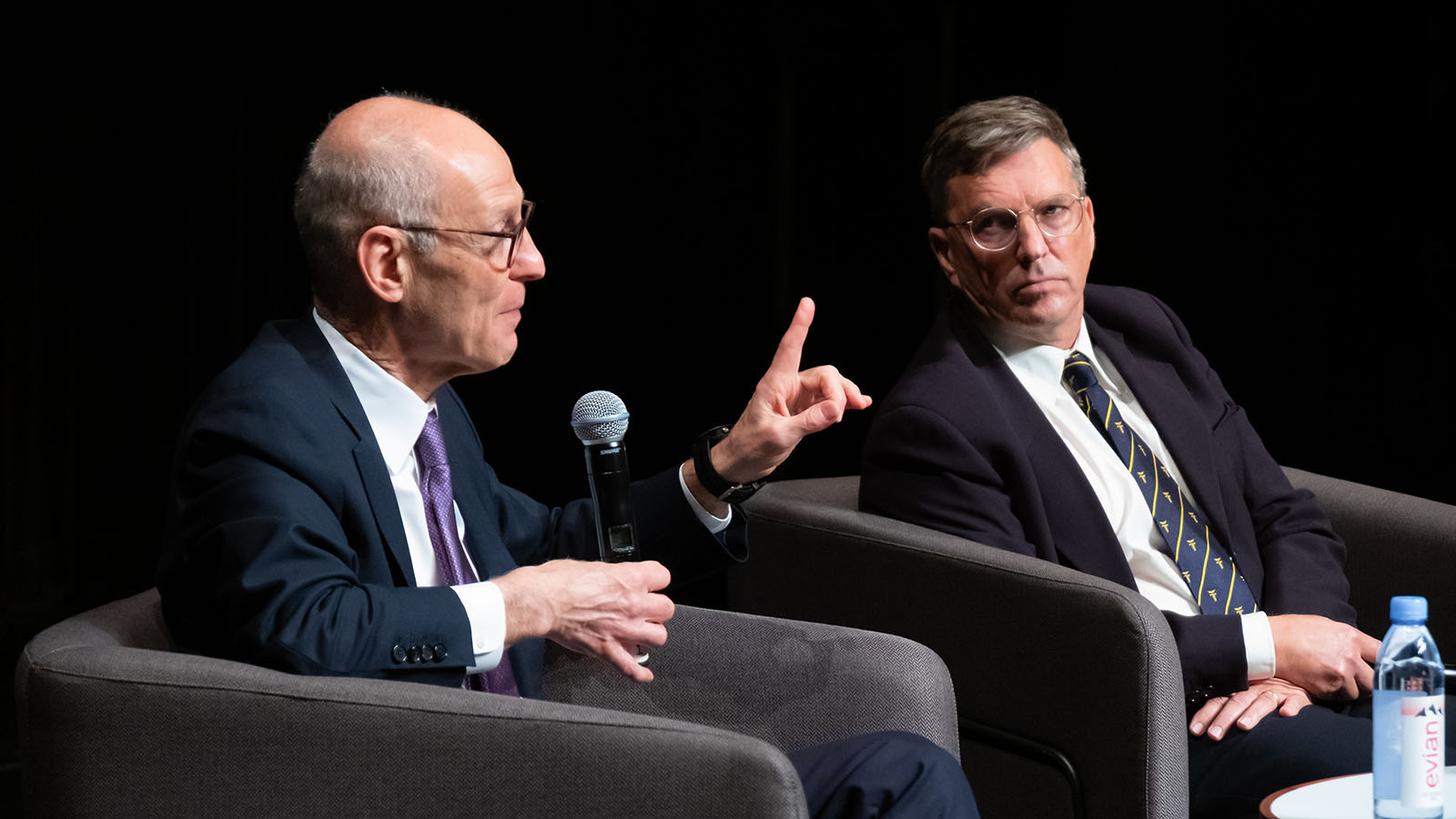
Dr Ezekiel J. Emanuel (right), and Professor Julian Savulescu, Director of the Centre for Biomedical Ethics (left), engaging at the Q&A session.
Speaking at the inaugural Global Ethics Lecture organised by CBmE at NUS Medicine, Dr Ezekiel J. Emanuel, Vice Provost for Global Initiatives and the Diane v.S. Levy and Robert M. Levy University Professor, Co-Director of the Health Transformation Institute, emphasised that there are fundamental principles in resource allocation.
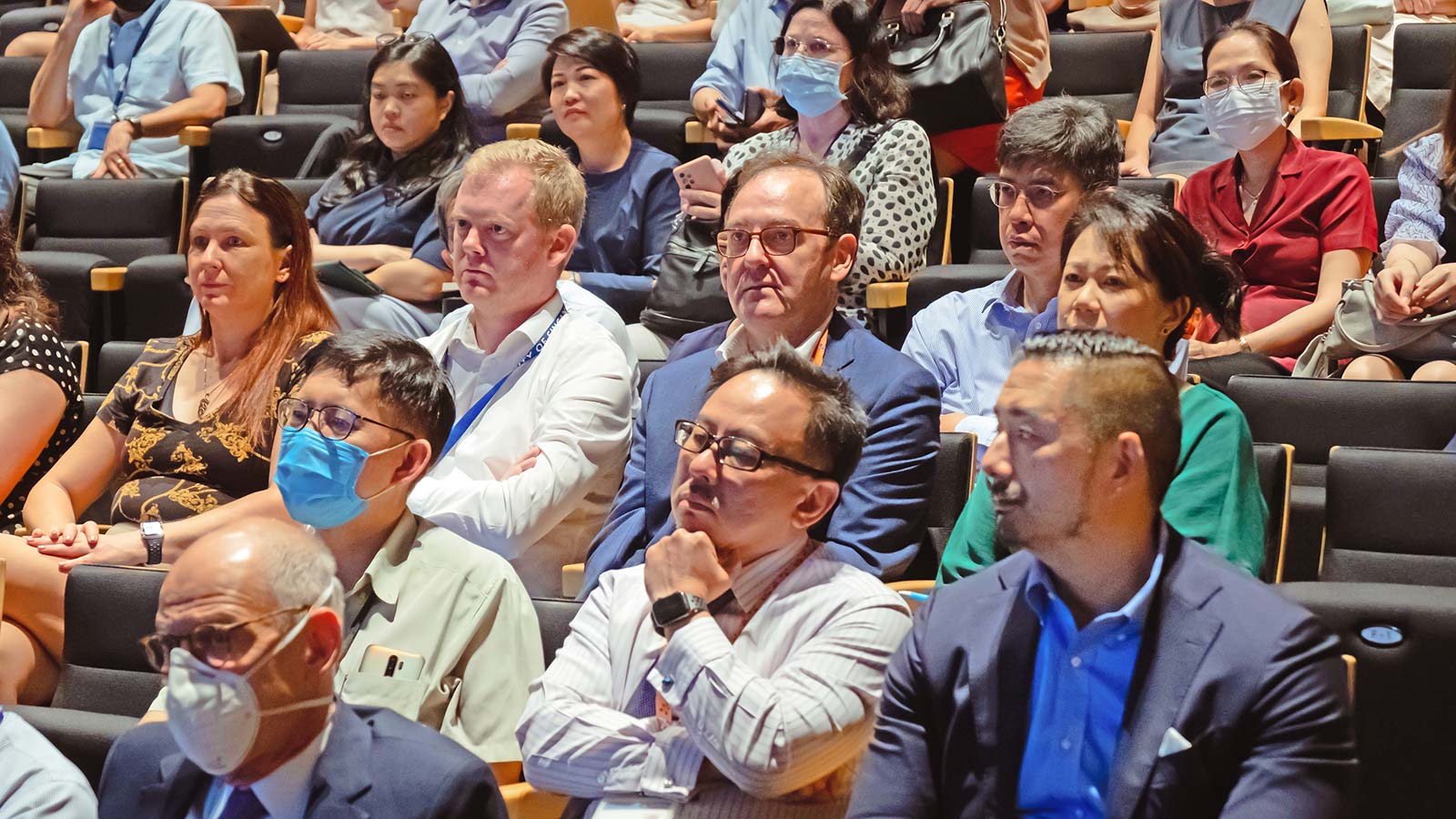
Participants listening attentively to the talk.
This is CBmE’s first conference, held on 9 January 2023 at the NUS University Cultural Centre. Over 200 guests attended the conference, including senior government leaders as well as leaders from academic and healthcare institutions, healthcare professionals and students.
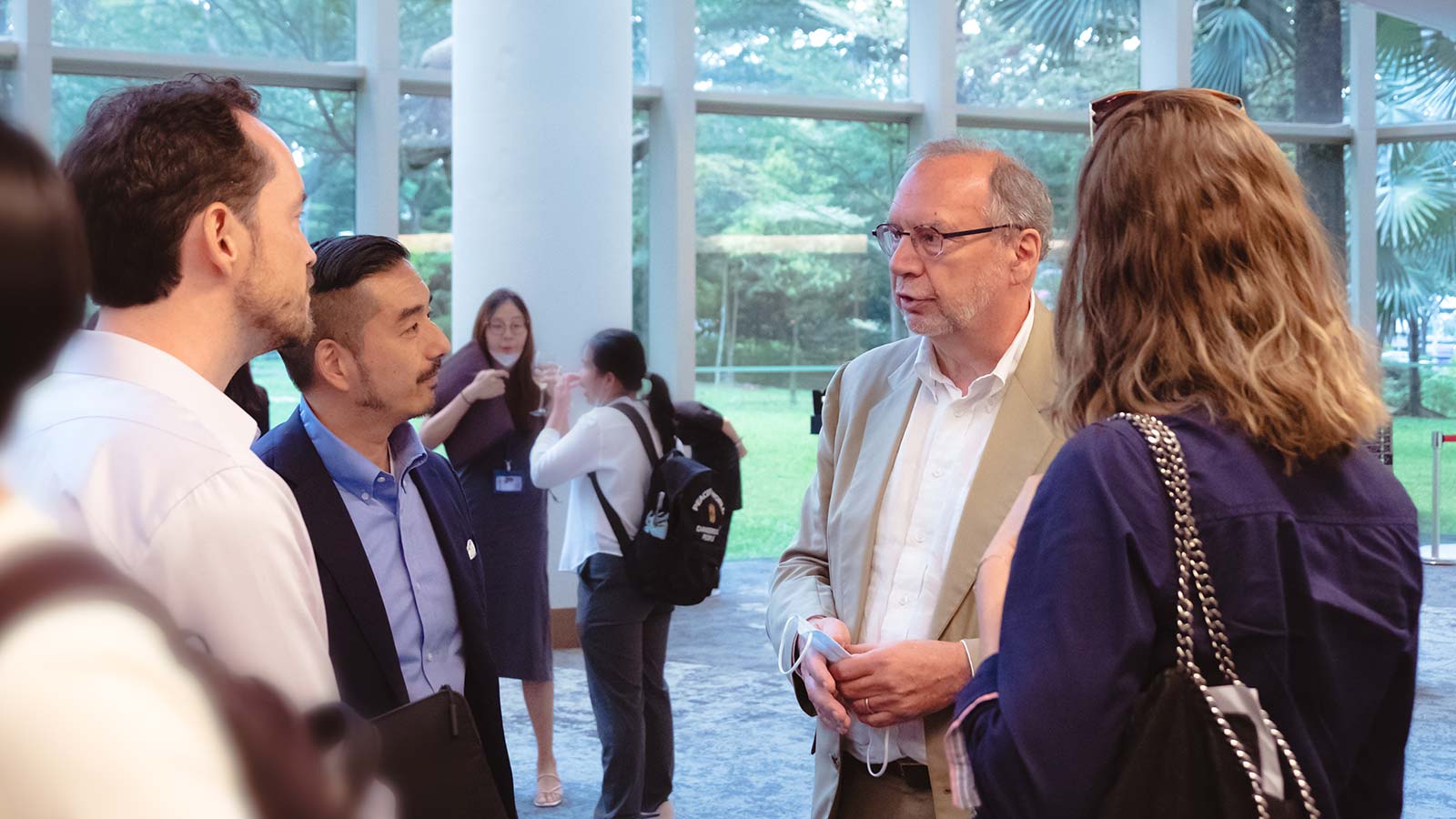
Guests engaging in conversation after the lecture.
Titled, “What is the ‘Fair and Equitable’ Allocation of Scarce Medical Resources?”, Dr Emanuel’s talk centred on the way countries allocated medical resources such as vaccines during the COVID-19 pandemic. He drew on important ethical values and principles that countries should consider during the resource allocation process, elaborating on the resource situation in the context of malaria and cholera.

